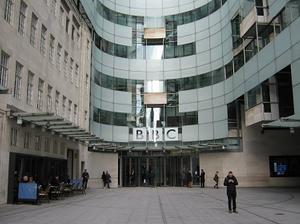BBC proves a Covid-19 winner, but future finances look bleak
The corporation’s annual report shows the broadcaster remains popular and trusted, but costs mean more cuts on the way.

© NUJ
The BBC's latest annual report shows the corporation can be proud of its record in reacting to the Covid-19 crisis as a public service broadcaster and deserves a pat on the back for the services it provided to inform, education and entertain the UK population during these difficult days.
It says it has worked to address the gender pay gap which put the broadcaster to shame when the list of its highest presenters and stars was published three years ago. But its finances have been severely hit and as the NUJ is grappling with 2,000 job cuts in news and current affairs, further savings are on the cards – it says it intends to make additional savings of more than £300m over the next two years and will be seeking further commercial activity to raise revenues.
It is also concerning that while most of the cuts have fallen on grassroots reporters, the BBC has increased its management headcount from 250 to 253.
The report said that more than nine in 10 people, including 81 per cent of children, used the corporation each week and it remained the number one broadcaster for impartial news coverage, with 51 per cent of news consumers naming the BBC as the source they are most likely to turn to; this is up from 44 per cent in 2018/19. It reaches a record 468 million people outside the UK every week.
Four women – Zoe Ball, Vanessa Feltz, Fiona Bruce and Lauren Laverne – have made the top 10 of the BBC's highest-paid stars, with a 55:45 split between men and women "talent" paid over £150,000. The BBC says it now has one of the lowest gender pay gaps in the industry with its median reduced this year to 6.2 per cent from last year's figure of 6.7 per cent, significantly lower than the national average which is 17.3 per cent. But there were no people of colour in the top ten and the report showed 12.3 per cent of BBC leaders were BAME, below its 15 per cent target for 2020.
A Freedom of Information request revealed that at least 84 women were given pay increases through formal processes between July 2017 and March 2020. During the same period, 608 women received a pay revision or increase through an informal pay enquiry.
It is clear audiences believe the BBC needs to do more to properly reflect the culture of the UK. Only 57 per cent of adults think the BBC reflects the part of the of the UK where they live. In the North of England, nearly one in four believe the BBC is ineffective in representing people like them. This will only get worse if the BBC continues with its proposals to cut £25m from its budget for English Regions and get rid of 450 journalists. The figures show the BBC needs to do more to appeal to viewers and listeners outside the South east of England, BAME audiences, working class and disabled people.
By the end of next year, the BBC will have made £800m in savings in just five years and will be hit as it starts to pay the over-75s' licence fees and make up for the £125m extra costs caused by Covid-19; licence fee income has fallen by close to £200m. It also faces the political threat of having the non-payment of licences decriminalised. Tim Davie, the new director general, faces huge challenges on the funding front and will have to grasp the nettle at looking at new, sound methods to ensure that the BBC retains its record as the most trusted and impartial news source as well as providing top-class drama and entertainment.
Paul Siegert, NUJ national broadcasting organiser, said:
"Many of the BBC's problems today are a legacy of the poor licence fee settlement back in 2015. They should never have agreed to take on the cost of providing free TV licences for the over-75s and that deal continues to harm it today.
"The Covid-19 pandemic showed the importance of the BBC but it needs proper funding. How can Tim Davie, the new director general, talk about the importance of getting out of London and into the regions but at the same time cut 450 regional journalism jobs? How is that going to help reach the so-called under-served audiences?
"Overall, around 2,000 journalism jobs are going to be lost as the BBC grapples with the extra costs caused by Covid-19. So, it's time the government stepped in to fill this funding gap rather than inflict even more cuts on a cash-starved BBC. Then we can have a broader debate over its long-term funding."
BBC Media Centre: BBC Annual Report 2019-20
The Guardian: BBC has given rises to 700 female staff since start of pay scandal
